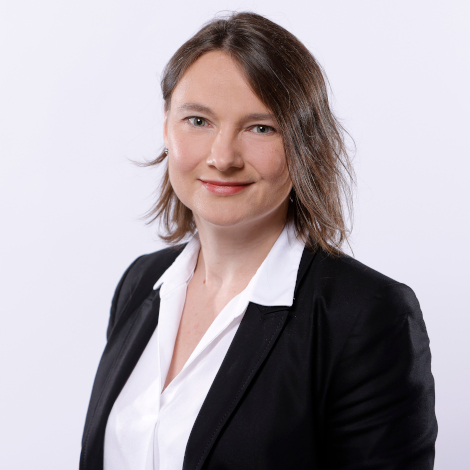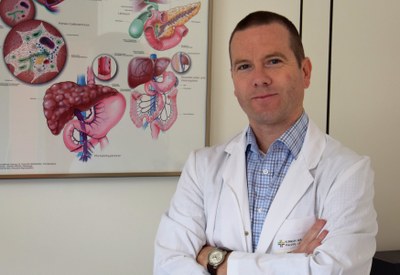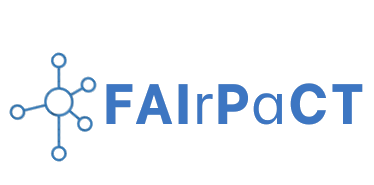Federated Artificial Intelligence Framework for Optimizing Pancreatic Cancer Treatment
The “FAIrPaCT” research network, funded by the BMBF under the National Decade Against Cancer initiative, aims to develop a federated AI software system to predict the success of individual pancreatic cancer treatments and identify factors that improve therapy effectiveness. With insights gained from analyzing molecular mechanisms, the project strives for advanced, personalized medications and treatment strategies. Utilizing federated learning, FAIrPaCT leverages diverse data sets, including clinical and molecular data from Germany’s largest patient cohorts, while ensuring high data protection standards by analyzing data across devices without central storage. The network collaborates with major German medical centers, including the University Medical Center Göttingen and the University Hospital of Gießen and Marburg, to harness unique and extensive data for their groundbreaking work.

-
FAIrPaCT Innovation: Cross-Species Data Integration WITHOUT Gene Maps!
AI Just Crushed a Major Barrier in Biomedical Research! Authors:Youngjun Park (FAIrPaCT Member)Nils P. MuttrayAnne-Christin Hauschild (FAIrPaCT Member) Published in:Briefings in Bioinformatics, 2024👉 Read the paper here : https://academic.oup.com/bib/article/25/2/bbae004/7596256?login=true What’s the Big Deal? Biomedical research relies heavily on model organisms (think: mice, zebrafish) to study human diseases. The problem? Different species = different genes. Translating […]
-
GCB 2023 Spotlight: FAIrPaCT’s Species-Agnostic AI for Biomedical Data
Breaking Barriers: Cross-Species Transfer Learning Without Gene Homology Presented by Youngjun Park at GCB 2023(FAIrPaCT Member, University Medical Center Göttingen) How do we transfer scientific knowledge from model organisms like mice to humans, when their genetic blueprints don’t perfectly align? At GCB 2023, FAIrPaCT’s Youngjun Park unveiled a bold solution to this decades-old challenge: Species-Agnostic […]
-
Potential Applications of Transfer Learning in Limited Biomedical Data – GMDS 2022 Highlight
Title:Potential Applications of Transfer Learning in Limited Biomedical Data Presenter:Youngjun Park (FAIrPaCT Member) Collaborators:Anne-Christin Hauschild (FAIrPaCT Member)Dominik Heider Event:GMDS 2022 – Annual Meeting of the German Association for Medical Informatics, Biometry and Epidemiology Overview:At GMDS 2022, Youngjun Park presented innovative research on how transfer learning can address key challenges in biomedical data analysis, especially in […]
-
Federated Random Forest for Partially Overlapping Clinical Data: A Breakthrough in Privacy-Preserving Healthcare AI
Authors: Youngjun Park, Cord Eric Schmidt, Benedikt Marcel Batton, Anne-Christin Hauschild (FAIrPaCT Member) Introduction At FAIrPaCT, we are committed to advancing ethical AI solutions that protect data privacy while fostering scientific collaboration. Our members have contributed to a groundbreaking study on Federated Random Forest (FRF) for Partially Overlapping Clinical Data, an approach that enhances machine […]
-
FAIrPaCT 3rd Workshop: Shaping the Future of AI in Precision Medicine
On January 14-15, 2025, the FAIrPaCT Consortium successfully hosted its third workshop at the Science Congress Center in Munich, bringing together leading experts in artificial intelligence, data management, and precision medicine. The event featured a rich agenda of insightful talks, highlighting key advancements in federated AI, oncology research, and data-driven healthcare innovations. The workshop opened […]
-
Successful Workshop on Federated Ensemble Learning at ISMB 2024
Successful Workshop on Federated Ensemble Learning at ISMB 2024 We are pleased to announce the successful completion of the workshop titled ‘Federated Ensemble Learning for Biomedical Data’, held during the prestigious ISMB 2024 conference in Montreal on July 12th. The workshop was organized by Anne-Christin Hauschild, Youngjun Park, Hryhorii Chereda, and Maryam Moradpour as part […]
-
Poster : Federated Artificial Intelligence fRamework for PAncreatic Cancer Treatment
Location University of Göttingen/ University Medical Center Göttingen Department of Medicals Informatics (UMG) Prof. Dr. Anne-Christin Hausschild (Coordinator, PI WP1, WP2) Prof. Dr. Uli Sax (PI WP3, WP7) Department of Medical Bioinformatics (UMG) Prof. Tim Beißbarth (PI, WP6) Dr. Gregory Chereda Clinic for General, Visceral and Paediatric Surgery Clinic for Gastroenterology, Gastrointestinal Oncology and Endocrinology Prof. Dr. Elisabeth Hessmann (PI, WP3) Prof.…
-
About the Project
The “FAIrPaCT” research network is funded by the BMBF as part of the National Decade Against Cancer and aims to develop a software system that can individually predict the probability of success of pancreatic cancer therapies. This should increase the chances of effective treatment. In addition, factors could be identified that positively influence the effectiveness […]
-
Project goals
Artificial intelligence for better therapies. The research team now wants to analyze this data together. The software system that medical IT specialists develop on this basis should be able to estimate the probability of success for specific treatment approaches. Since the data comes from three different locations, the calculations go beyond the boundaries of one location. In the future, the system will be usable regardless of…
Partners

Prof. Dr. Anne-Christin Hauschild
University Medical Center Göttingen, Institute for Medical Informatics

Prof. Dr. med. Maximilian Reichert
Technical University of Munich, Klinikum Rechts der Isar of the TUM, Clinic and Polyclinic for Internal Medicine II

University Medical Center Göttingen, Institute for Medical Informatics

Philipps University of Marburg, Center for Tumor and Immunobiology

University Medical Center Göttingen, Institute for Medical Bioinformatics

Göttingen University Medical Center, Department of Gastroenterology, Gastrointestinal Oncology and Endocrinology

